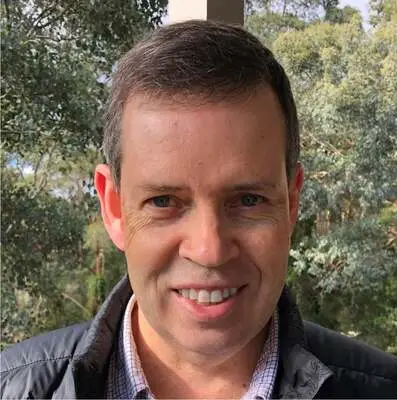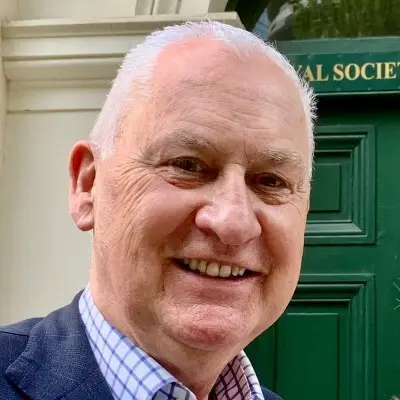/*! elementor – v3.23.0 – 05-08-2024 */
.elementor-widget-image{text-align:center}.elementor-widget-image a{display:inline-block}.elementor-widget-image a img[src$=”.svg”]{width:48px}.elementor-widget-image img{vertical-align:middle;display:inline-block} 
/*! elementor – v3.23.0 – 05-08-2024 */
.elementor-heading-title{padding:0;margin:0;line-height:1}.elementor-widget-heading .elementor-heading-title[class*=elementor-size-]>a{color:inherit;font-size:inherit;line-height:inherit}.elementor-widget-heading .elementor-heading-title.elementor-size-small{font-size:15px}.elementor-widget-heading .elementor-heading-title.elementor-size-medium{font-size:19px}.elementor-widget-heading .elementor-heading-title.elementor-size-large{font-size:29px}.elementor-widget-heading .elementor-heading-title.elementor-size-xl{font-size:39px}.elementor-widget-heading .elementor-heading-title.elementor-size-xxl{font-size:59px}
Unlocking nature’s shield
Utilium has developed a plant-based antifouling treatment that targets the biofilm stage to reduce the accumulation of microorganisms, algae and marine invertebrates on the hulls of ships and other surfaces.
Contact US
ABOUT UTILIUM
Marine biofouling continues to be a major problem for the global shipping industry. It is necessary to find new technologies that control the growth of marine life on solid surfaces, do not impact the marine environment and that are economic in operation. Utilium is an Australian owned company developing proprietary technology that will achieve these objectives using a plant-based solution as the active ingredient.
DOWNLOAD White paper

Key Facts
GHG EMISSIONS
A thin coating of 0.5 mm slime (biofilm) covering up to 50% of a hull surface can trigger an increase of GHG emissions in the range of 20 to 25% and a light covering of barnacles can result in a 55% increase in GHG emissions.
BILLIONS LOST
Biofouling costs the global shipping industry at least $100 billion annually in lost revenue, extra fuel to compensate for the increased drag biofouling causes and hull cleaning.
GREEN TECHNOLOGY NEEDED
Governments and industry spend more than US$5.7 billion annually to prevent and control marine biofouling. Antifouling research’s main objective is to develop green, sustainable, viable, widely applicable, and environmentally friendly antifouling technology.
TOXIC CHEMICALS BANNED
Antifouling chemicals containing tributyltin (TBT) are typically successful, however, are very harmful due to their toxic effects on the environment and have been banned since 2008 in many countries after an International Maritime Organization (IMO) report.
BIO MANAGEMENT REGULATIONS
Australia has strict biofouling management requirements. All vessels must report on biofouling management activities, keep accurate records and provide an effective bio management plan to authorities on request.
BREAKTHROUGH SOLUTION
Utilium’s organic antifouling treatment reduces the accumulation of microorganisms, algae, and marine animal’s life on the hulls of ships and other surfaces at the biofilm stage.
INITIAL DATA
/*! elementor – v3.23.0 – 05-08-2024 */
.elementor-column .elementor-spacer-inner{height:var(–spacer-size)}.e-con{–container-widget-width:100%}.e-con-inner>.elementor-widget-spacer,.e-con>.elementor-widget-spacer{width:var(–container-widget-width,var(–spacer-size));–align-self:var(–container-widget-align-self,initial);–flex-shrink:0}.e-con-inner>.elementor-widget-spacer>.elementor-widget-container,.e-con>.elementor-widget-spacer>.elementor-widget-container{height:100%;width:100%}.e-con-inner>.elementor-widget-spacer>.elementor-widget-container>.elementor-spacer,.e-con>.elementor-widget-spacer>.elementor-widget-container>.elementor-spacer{height:100%}.e-con-inner>.elementor-widget-spacer>.elementor-widget-container>.elementor-spacer>.elementor-spacer-inner,.e-con>.elementor-widget-spacer>.elementor-widget-container>.elementor-spacer>.elementor-spacer-inner{height:var(–container-widget-height,var(–spacer-size))}.e-con-inner>.elementor-widget-spacer.elementor-widget-empty,.e-con>.elementor-widget-spacer.elementor-widget-empty{position:relative;min-height:22px;min-width:22px}.e-con-inner>.elementor-widget-spacer.elementor-widget-empty .elementor-widget-empty-icon,.e-con>.elementor-widget-spacer.elementor-widget-empty .elementor-widget-empty-icon{position:absolute;top:0;bottom:0;left:0;right:0;margin:auto;padding:0;width:22px;height:22px}
ROCKS PLACED IN TIDAL POOL
We coated rocks with UtilityOne antifouling agent and placed them in a tidal pool with the control rocks. After 85 days, there is clear evidence of biofilm and life growing on the control, but not the rocks with UtilityOne antifouling agent.
TWO SURFACES TESTED
UtilityOne prevents biofouling on two different surfaces.
METAL PLATES 1M BELOW SEA LEVEL
We coated the front side of a metal plates with UtilityOne. After just 14 days, there is clear evidence of plant life growing on the back control sides – UtilityOne , but not the front + UtilityOne.
INITIAL DATA
METAL PLATES 1M BELOW SEA LEVEL
We coated the front side of a metal plates with UtilityOne. After just 14 days, there is clear evidence of plant life growing on the back control sides – UtilityOne , but not the front + UtilityOne.
ROCKS PLACED IN TIDAL POOL
We coated rocks with UtilityOne antifouling agent and placed them in a tidal pool with the control rocks. After 85 days, there is clear evidence of biofilm and life growing on the control, but not the rocks with UtilityOne antifouling agent.
TWO SURFACES TESTED
UtilityOne prevents biofouling on two different surfaces.
INITIAL TRIALS ARE UNDERWAY AND EARLY RESULTS ARE POSITIVE. A MORE COMPREHENSIVE RESEARCH PROGRAMME FOR TRIALS AT A RANGE OF SITES ON A RANGE OF SUBSTRATES AND UNDER DIFFERENT CONDITIONS IS IN DEVELOPMENT.
UTILIUM WELCOMES DISCUSSION WITH PARTIES CONSIDERING EARLY STAGE INVESTMENT IN THIS EXCITING PROJECT.
THE TEAM

DR DAVID STAPLETON
Dr David Stapleton is highly analytical, solutions-driven professional with multifaceted experience in academic biomedical research, entrepreneurship, business project management, and scientific communication across diverse industries.
David has 25 years’ experience as an academic researcher at the University of Melbourne resulting in 100+ peer reviewed publications, over $3 million in grant funding, patents and inventor in two biotech companies. Interest in plant-based solutions resulted in a move to the private sector. Here he became instrumental in monitoring and innovating scientific developments as well as capturing lucrative opportunities to highlight the relevant research and expertise.

ROB GELL AM
Rob Gell is an environmental geoscientist, former academic and television weather presenter with extensive experience with non-profit, government and private organisations in sustainable business strategy consulting, environmental communications and marketing and project design for the emerging green economy. Rob is actively engaged in a range of projects and solutions, identifying opportunities for transformation to a sustainable society.
He is a company director or advisor to sustainable technology companies involved in sustainability advisory services, mine waste rehabilitation, environmental sensing, resources recovery, strategic water storage and food waste software. He is President of the Royal Society of Victoria, a Fellow of the Royal Geographical Society, an Inaugural Fellow of the Environment Institute of Australia and New Zealand and a Member of the Order of Australia for significant service to conservation, to the protection of coastal and marine environments, and to the community. Rob is a published author and photographer.

WANI WALL
With a broadcast creative background, Wani Wall is a marketing communications/brand builder, stakeholder management and project delivery specialist with significant experience helping companies, public and private, across multiple sectors, achieve their business objectives. Over the last decade her focus has been on building technology startups.
She was CXO of a publicly-listed health company leading a multidisciplinary team taking a medtech innovation for chronic disease through R&D to ARTG listing. In 2020, during COVID, Wani managed media, brand and communications for the groundbreaking NOTUS emergency ventilator project and most recently, as Chief Operating Officer, has driven the commercialisation of a world-first water quality monitoring technology.
SO LET’S DO IT.
LET’S TALK ABOUT ORGANIC ANTIFOULING.
To learn more about our breakthrough solution, get in touch today.
ABN 93 670 887 699




